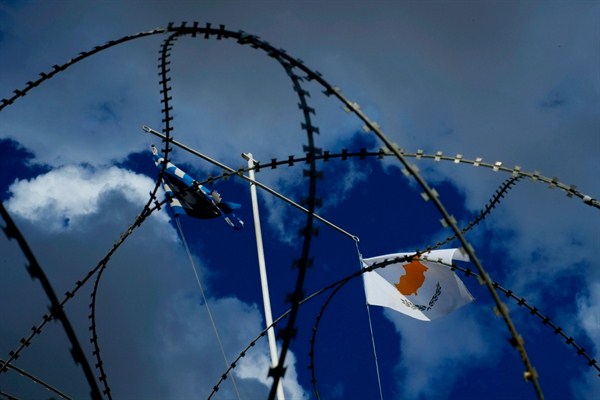Reunification talks between Cyprus and northern Cyprus in the Swiss resort of Mont Pelerin ended Friday with Cypriot President Nicos Anastasiades and his Turkish Cypriot counterpart, Mustafa Akinci, agreeing to reconvene on Nov. 20 in Geneva. Both leaders, as well as the United Nations, which is backing the peace talks, said that significant progress was made. However, many of the most contentious issues are yet to be resolved.
The eastern Mediterranean island of Cyprus has been divided since 1974 between the Greek-speaking south, officially the Republic of Cyprus, and the breakaway Turkish-speaking north, which is only recognized by Turkey. Since 2014, there has been steady optimism that the island could finally be reunified.
But for that to happen, answers need to be found to countless difficult questions: What will the political structure of the new federal Cyprus be? How many Turkish settlers will be allowed to stay in Cyprus? How much territory will Turkish Cypriots cede to Greek Cypriots?

